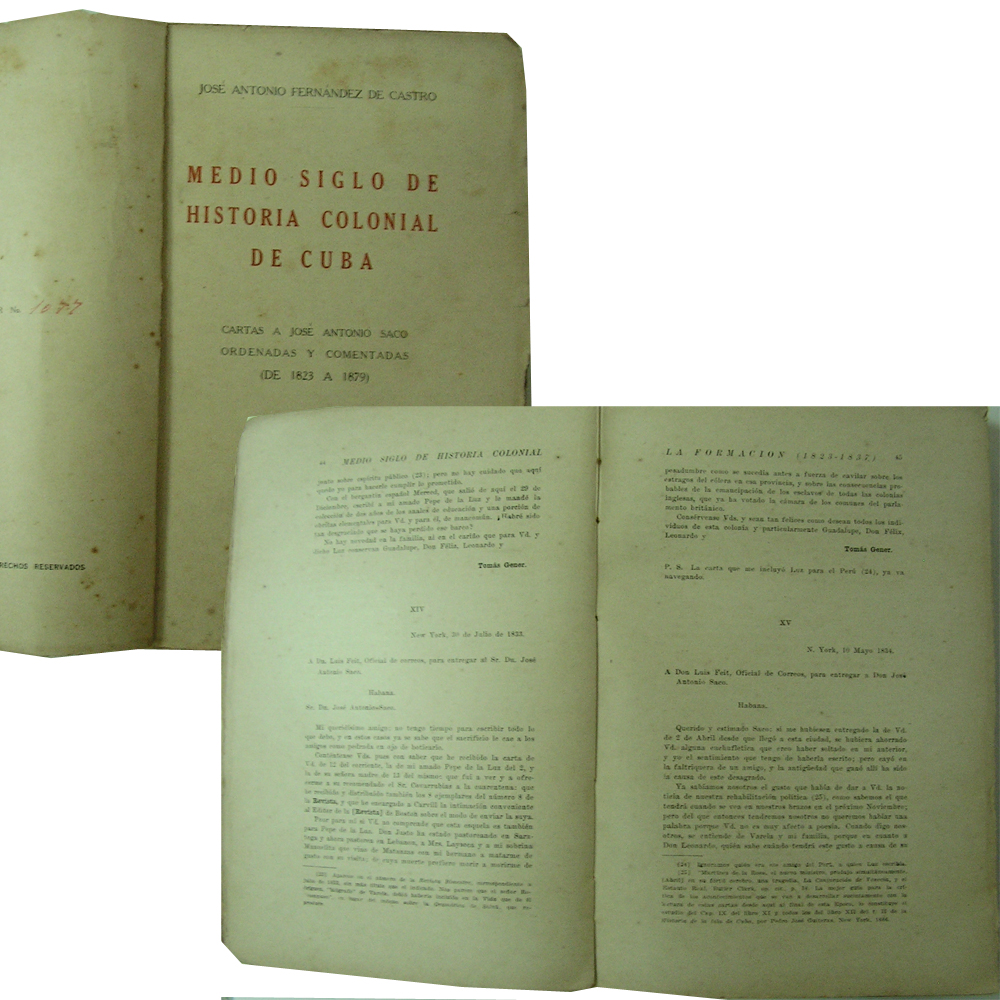3.6 Historiographical texts in the colonial period, from 1868 to 1898, the development of the biographical genre

The development of historical research and the formation of this field of knowledge as a scientific discipline has not been left out of the realm of literature, precisely because it uses language and even some rhetorical and literary resources to express its cognitive results. This is even more true for the early stages of the development of historiographical studies and is applicable to colonial Cuba. Even the reference text “History of Cuban Literature” includes a section on historical studies.
While testimonial texts focus on the personal memories of direct participants in events whose importance is proven by documenting them, historical studies take a critical and evaluative stance – taking the testimonies themselves as a source – and focus on reconstructing periods and elucidating the veracity of events.
Studies of this kind were scarce in Cuba, as fundamental data on the conduct of the colonial administration and the troops in its service were usually withheld from ordinary citizens. Furthermore, with the exception of some testimonial texts cited above, much documentation on the jungle fell into the hands of enemy soldiers and was destroyed, making it difficult to reconstruct some facts from an unbiased perspective.
A genre rooted in history that did have some development was the biography, albeit late, as it is associated with the dawn of nationality, as it arose from the need to highlight the trajectory of Cubans, “criollos,” over peninsular immigrants and those linked to politics.
However, the genre did not initially have a literary character, since in the effort to objectify the personality of the subjects of the biography, only public life was captured and the documentary plane was privileged as the only true evidence of their actions.
However, objectivity was relatively limited, as the authors sought to frame the personalities they wrote about within their own ideological framework. In this sense, the figures of Félix Varela and José de la Luz y Caballero, among others, were distorted in some historiographical contributions.
The biographical projection of Cuban writers was tempered by some foreign influences, as the genre was also undergoing a process of transformation in Europe, in line with the findings of psychology and other social sciences. This genre was increasingly “literaryized” as it was understood that reconstructing personality profiles from distant periods required a degree of figurative energy and the ability to recreate the ethos, in order to evoke the historical figure with greater verisimilitude.








